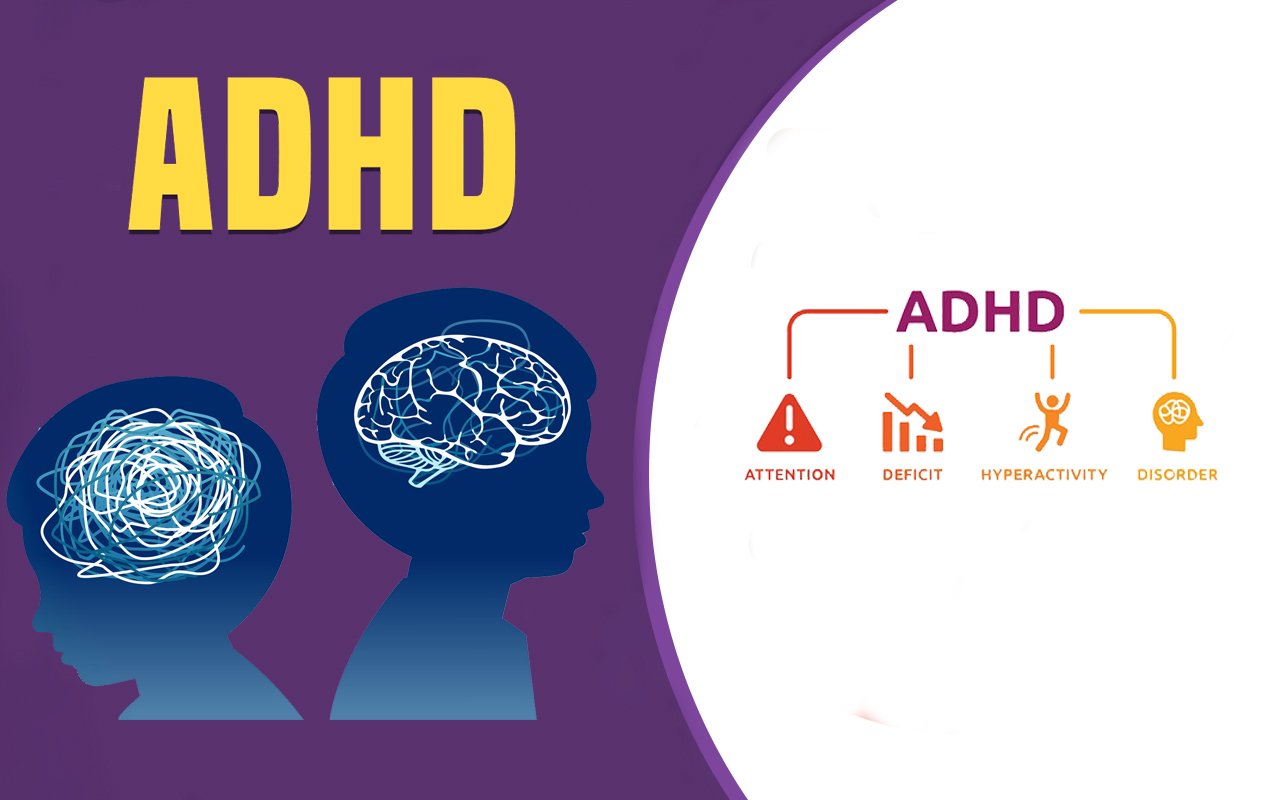Affecting approximately 10% of all children, and 3-5% of the population as a whole, Attention Deficit Hyperactivity Disorder, also known as ADHD is the fastest growing behavioral disorder in the United States. Despite its prevalence, however, this condition remains largely misunderstood. Specialists suspect that upwards of 85% of adults suffering from ADHD and 50% of the pediatric populous remain undiagnosed. ADHD is commonly attributed to other factors such as stress in adults or a normal pattern of hyperactivity in a child. However, if you’ve known anyone who suffers from this condition, or are faced with this challenging disorder on a daily basis, you know how uniquely challenging this disorder can be. ADHD can mess-up school, work, and normal day-to-day activities; adversely impacting the relationships between the sufferer and his or her family members. What’s more, the symptoms associated with this condition (i.e. difficulty concentrating, inability to finish a given project, procrastination) can become personality traits that can carry far beyond puberty and well into adulthood.
What is ADHD?
Attention deficit hyperactivity disorder (ADHD), or attention deficit disorder (ADD) with exhibited hyperactivity, is the name given to a group of chronic disorders. These disorders are coupled with specific mechanisms within the central nervous system (CNS) and include; inattention, hyperactivity, and impulsive behaviour. ADHD is often labelled a ‘neurobehavioral’ disorder and its symptoms can last a lifetime. There have been many names given to this condition, other than ADHD, which can make the ability to define the criteria needed to accurately diagnose this condition, or to differentiate between ADD and ADHD, a difficult undertaking. However, there are three categories of ADHD defined by the American Psychiatric Association:
- ADHD inattentive
- ADHD hyperactive-impulse, and
- Combination of the two (ADHD inattentive combined with ADHD hyperactive-impulse)
To further simplify matters, ADD can be described as the inattentive form of attention deficit disorder without hyperactivity. The diagnosis of ADHD is usually reserved for the hyperactive-impulsive and combined forms of the condition.
Causes of Attention deficit hyperactivity disorder (ADHD)
Researchers believe that certain structural changes in the brain are the primary cause of ADHD. Research has also uncovered other factors not related to brain chemistry that may play a significant role, as well. These include, but are not limited to; altered brain function, heredity, diet, maternal smoking, exposure to toxins and drug usage.
Altered brain function – Certain chemical imbalances and disruptions in the neural pathways responsible for messaging relating to attention, movement, and motivation, are considered contributing factors to ADHD.
Heredity – One in four with ADHD will also have another family member who suffers from the condition. Diet – Many individuals with ADD and ADHD react to the preservatives, dyes, and salicylates found in common food items. Food additives and a low protein diet are also thought to play a significant role in hyperactivity.
Signs and Symptoms of ADHD
ADHD can be characterized by one (or in some combination) of the following symptoms:
Tendency to disturb others (especially in children)
Tendency to become frustrated easily
Problems adapting to new activities/emotions
Self-limiting and self-destructive behaviour
Difficulty accomplishing tasks (e.g. homework, work, etc.)
Temper tantrums or extreme mood swings
Impatience/difficulty waiting
Reduced tolerance for normal stressors (environmental or emotional)
Easily frustrated
Over activity and the inability to sit still for any length of time
Impulsiveness and daring behaviour
Awkwardness when performing physical activities
Clumsiness
Extremely talkative Failure in work or school, despite average or above-average intelligence
Attention deficit hyperactivity disorder (ADHD) Treatments
To date, it seems the most effective treatment protocols employ a multi-treatment approach (i.e. combination therapies). However, ADHD treatment continues to be a topic of intense debate. Many prescription medications produce unwanted and counterproductive side effects. Additionally, behavioural modifications do not work for all sufferers. Nonetheless, the most common treatment methods remain:
Behavioural Therapy: This may include counselling as well, and is performed under the guidance of a psychiatrist, psychologist, social worker, or other health care professional. Counselling therapies include behaviour therapy, family therapy, psychotherapy, parenting skills training, and social skills training.
Medications: Psycho-stimulants and antidepressants are the primary drugs used to treat ADHD. Although these drugs may provide some relief of the core symptoms (e.g. inattention and hyperactivity) they fail to correct individual coping mechanisms or conflict at home and in the classroom. What’s more, these medications are notorious for producing unwanted side effects in both children and adults. Decreased appetite, corresponding weight loss, nervousness, and problems sleeping are often reported are normal reactions.
Experimental Therapies: Biofeedback and Brainwave biofeedback techniques are two therapies that have evolved as potential ADHD treatments. In each form of biofeedback training, patients learn to control their stress and hyperactivity levels by manipulating brain wave patterns and body responses. However, these approaches are considered unproven and their effectiveness has not been clearly established.
Natural and Alternate Remedies of ADHD
Some natural and alternate remedies recommended for relief from ADHD are:
Exercise – Aerobic exercises, martial arts, squats, push-ups and activities such as jumping ropes especially outside amidst nature is considered helpful.
Diet – High fibre diet of wholegrain, seeds and vegetables/fruits is recommended. Some studies state that Saffron intake can help with inattention and hyperactivity.
Supplements – Zinc, iron, and omega fatty acids are useful to improve some ADHD symptoms.
Alternate Healing Methodologies – Yoga, Meditation, Aromatherapy can also be of help.

